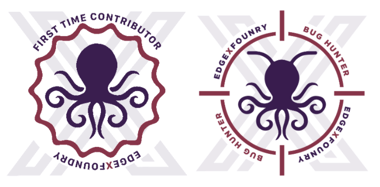EdgeX Foundry Announces Jakarta, the Project’s First Long Term Support Release
Jill Lovato | 01 December 2021
Community debuts Developer Badge Program to recognize, reward developer contributions as it begins plans for Spring 2022 release, codenamed ‘Kamakura’
SAN FRANCISCO – December 1, 2021 – EdgeX Foundry, a Linux Foundation project under the LF Edge project umbrella, today announced the release of version 2.1 of EdgeX, codenamed ‘Jakarta.’ The project’s ninth release, it follows the recent Ireland release, which was the project’s second major release (version 2.0). Jakarta is significant in that it is EdgeX’s first release to offer long term support (LTS).
Long Term Support
“Only a few open-source projects offer long term support; the rapid change of open source projects and the effort needed to LTS is significant,” said Arpit Joshipura, general manager, Networking, Edge and IoT, at the Linux Foundation. “By including LTS, EdgeX demonstrates it understands the needs of the operational technology (OT) user base, and how products in this space must work and operate over longer periods of time than traditional IT solutions,” said Arpit Joshipura. “This is a big milestone for any open source community, and we are incredibly proud of EdgeX Foundry for this achievement.”
“Our Jakarta release is a stabilization release,” said Jim White, the EdgeX Foundry Technical Steering Committee (TSC) Chairman and co-founder of the project. “As such, it is our project community’s pledge to adopters that EdgeX offers you a stable version of the platform that you can expect the community to stand behind and support for a period of two years. We stand with you in support of EdgeX in real world, commercial deployments of the platform.”
The EdgeX long term support policy states that the community will work as quickly as possible and give “best effort and development priority to fix major flaws as soon as possible.” Major flaws by the project are defined as
- bugs causing the system or service to crash and where there is no work around for the function
- bugs for a feature/function that does not work and there is no work around for the function
- a security issue deemed a critical or high-level CVE (per CVSS)
The project has further stipulated in its LTS policy that “no new major functionality (at the discretion of the TSC) will be added” to the LTS version after the release happens.
More information about the Jakarta release, including a list of new features, can be found here: https://wiki.edgexfoundry.org/display/FA/Jakarta.
EdgeX Developer Badge Program
As a part of this release cycle, EdgeX also announced a new EdgeX Developer Badge program. EdgeX has created the Developer Badge program to thank those making initial impacts to the project by providing something that they can use to highlight their efforts and volunteerism on social media platforms. Contributors have started receiving an official digital badge (award through Credly) when
- they make their first contribution (their first GitHub Pull Request is accepted by the project and merged into one of the project’s code repositories)
- they fix two documented bugs of the project

Additional badges for other work may be awarded by the community in the future.
Kamakura Release – Spring 2022
The next EdgeX release, codenamed “Kamakura,” is set for Spring 2022. The community has held its semi-annual planning session to lay out the goals and objectives of this release. Kamakura is likely to be another dot-release that will again be backward compatible with all EdgeX 2.x releases (Ireland and Jakarta). Major additions currently under consideration and being developed by the community include:
- Initial north to south message bus. Improved security secrets seeding and allowing for delayed service starts.
- Metrics collection. .
- Dynamic device profiles. Better (native) Windows support
- Improve testing – including real hardware testing
- A second version release of the EdgeX Command Line Interface (CLI) which, compatible with EdgeX v2.x.
Learn more about this release on the project’s Wiki site.
About the Linux Foundation
Founded in 2000, the Linux Foundation is supported by more than 1,000 members and is the world’s leading home for collaboration on open-source software, open standards, open data, and open hardware. Linux Foundation’s projects are critical to the world’s infrastructure including Linux, Kubernetes, Node.js, and more. The Linux Foundation’s methodology focuses on leveraging best practices and addressing the needs of contributors, users and solution providers to create sustainable models for open collaboration. For more information, please visit us at linuxfoundation.org.
###
The Linux Foundation has registered trademarks and uses trademarks. For a list of trademarks of The Linux Foundation, please see our trademark usage page: https://www.linuxfoundation.org/trademark-usage. Linux is a registered trademark of Linus Torvalds.
About The Linux Foundation
The Linux Foundation is the world’s leading home for collaboration on open source software, hardware, standards, and data. Linux Foundation projects are critical to the world’s infrastructure including Linux, Kubernetes, Node.js, ONAP, OpenChain, OpenSSF, PyTorch, RISC-V, SPDX, Zephyr, and more. The Linux Foundation focuses on leveraging best practices and addressing the needs of contributors, users, and solution providers to create sustainable models for open collaboration. For more information, please visit us at linuxfoundation.org. The Linux Foundation has registered trademarks and uses trademarks. For a list of trademarks of The Linux Foundation, please see its trademark usage page: www.linuxfoundation.org/trademark-usage. Linux is a registered trademark of Linus Torvalds.